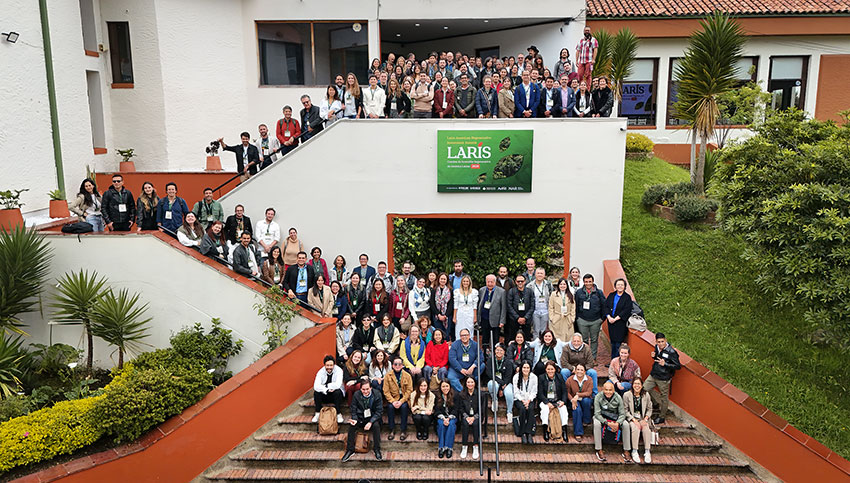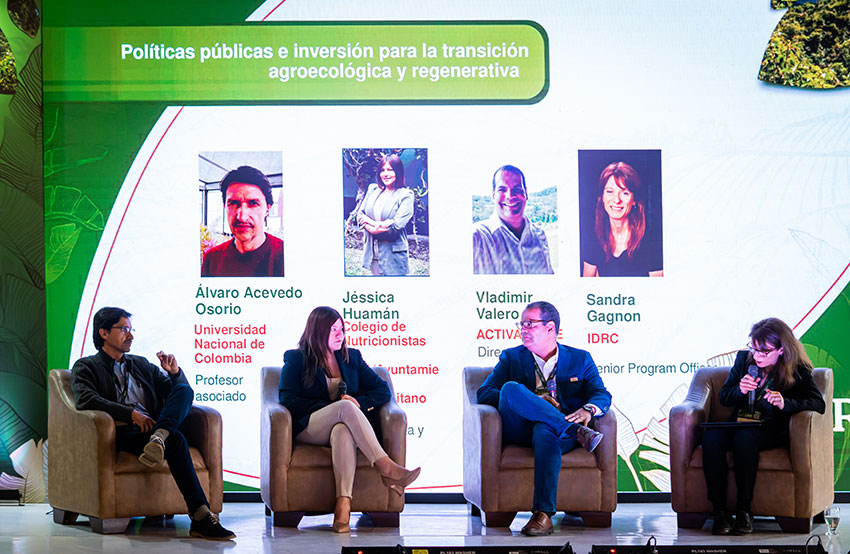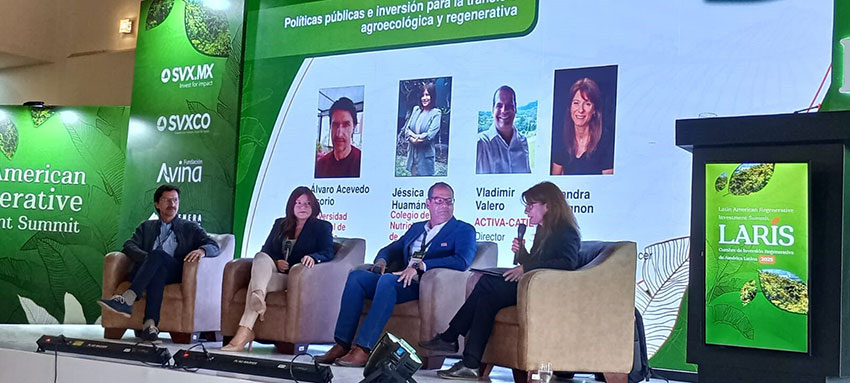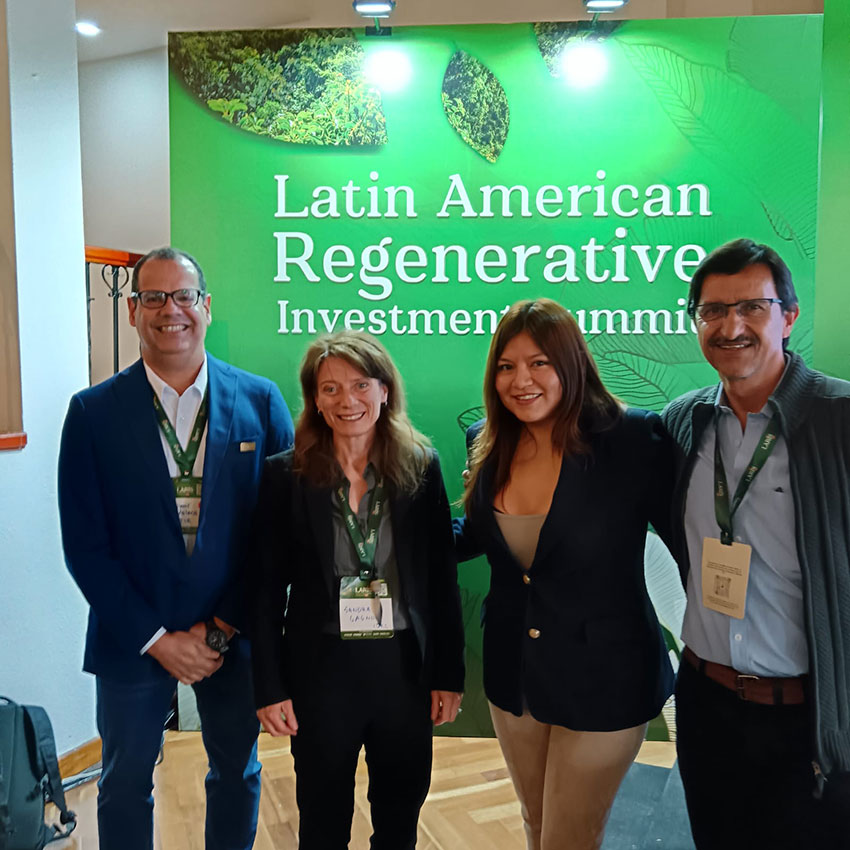CATIE's Positioning in the Context of Regenerative Business in Latin America

- Vladimir Valera, director of ACTIVA-CATIE, participated in the Latin American Regenerative Investment Summit (LARIS 2025), where he presented findings from a study conducted within the framework of the Regenerative Agrifood Business Consortium (NAR), to which CATIE belongs..
With the goal of promoting regenerative investments in Latin America and fostering strategic connections among farmers, investors, food system companies, and organizations committed to the regenerative transition, the Latin American Regenerative Investment Summit 2025 (LARIS 2025) was held in Bogotá, Colombia, from March 12 to 14.
Representing CATIE (Tropical Agricultural Research and Higher Education Center), Vladimir Valera, director of the Innovation and Entrepreneurship Laboratory: ACTIVA-CATIE, from the Productive Landscapes Forests and Biodiversity Unit (UBBPP), actively participated in this event, presenting findings from a study conducted within the NAR Consortium, of which CATIE is a member.

“This space allowed for the creation of important connections with impact funds and organizations from Latin America working on regenerative topics, which represents a great opportunity for new projects with diversified funding sources,” commented Valera.
Presentation of the NAR Consortium Study
On the third day of the summit, the director of ACTIVA-CATIE participated in the panel titled Public Policies and Investment for Agroecological and Regenerative Transition, where he presented the results of the study titled Identification and Mapping of Policies and Strategies for the Promotion of Regenerative Food Businesses (RFB) in Local Contexts of the Amazon and Central American Dry Corridor, developed by Carlos Pomareda within the framework of the NAR Consortium.
“This study identified 165 policies in Brazil, Colombia, Ecuador, Peru, Guatemala, and Honduras, classified into environmental management, economic incentives, market access, rural connectivity, gender equality, and agrarian development,” explained Valera.

“One of the key findings of the study was the identification of a lack of explicit policies for regenerative agriculture in the region, except for Peru and, more recently, Colombia. Additionally, some policies were found to be counterproductive, such as fertilizer subsidies that may hinder sustainable production,” explained the CATIE representative.
Strategic Recommendations from the Study
The study recommends formulating differentiated strategies for the Amazon and the Dry Corridor, taking into account the ecological and socio-economic particularities of each region.
Among other proposals from the NAR Consortium study aimed at policy advocacy actions are the following:
- Integration of agroecology into existing policies.
- Strengthening of economic incentives for regenerative businesses.
- Improvement of environmental governance.
- Generation of scientific and technical evidence to raise awareness or educate legislators.
- Promotion of coordination between public and private sector actors.
A Platform for Learning and Connection
Participation in LARIS 2025 was a valuable opportunity for CATIE and ACTIVA-CATIE, facilitating the exchange of knowledge with actors from the entrepreneurial and impact investment ecosystem in Latin America and the Caribbean. At the same time, it allowed for the establishment of connections with investors and organizations committed to the regenerative transition as a foundation for their impact and business model, which is of utmost importance for the work carried out by ACTIVA-CATIE.

More information:
Vladimir Valera
Director
ACTIVA-CATIE
Productive Landscapes Forests and Biodiversity Unit (UBBPP)
CATIE
Vladimir.valera@catie.ac.cr
Written by:
Marianela Argüello L.
Education and Communication Specialist
ACTIVA-CATIE
Productive Landscapes Forests and Biodiversity Unit (UBBPP)
CATIE
marguello@catie.ac.cr



